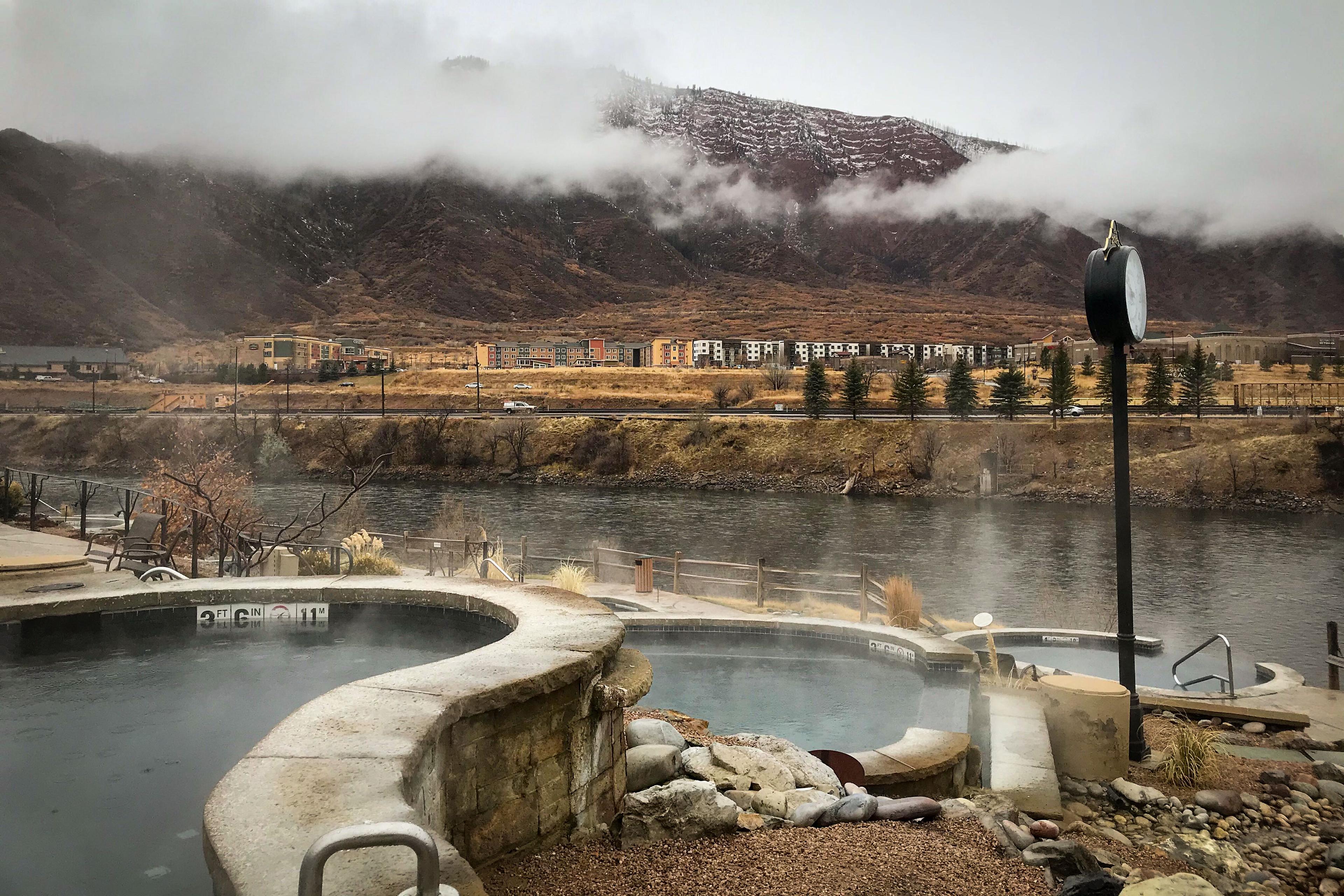
The 16 individual soaking pools of the Iron Mountain Hot Springs are heated by mineral water that bubbles up from the Earth’s ovenlike core. Between the hot springs and the nearby Glenwood Caverns adventure park, co-owner Steve Beckley said he gets over half a million visitors a year.
The problem: A limestone quarry expansion outside of Glenwood Springs is seen as a major threat to the resort town’s economy and to some of Beckley’s plans.
The proposal submitted by Rocky Mountain Resources to the Bureau of Land Management would balloon the existing 15-acre quarry to 320 acres. Upward of 450 truck trips a day would haul out more than 1,400 tons of rock per hour. Operations would be year-round.
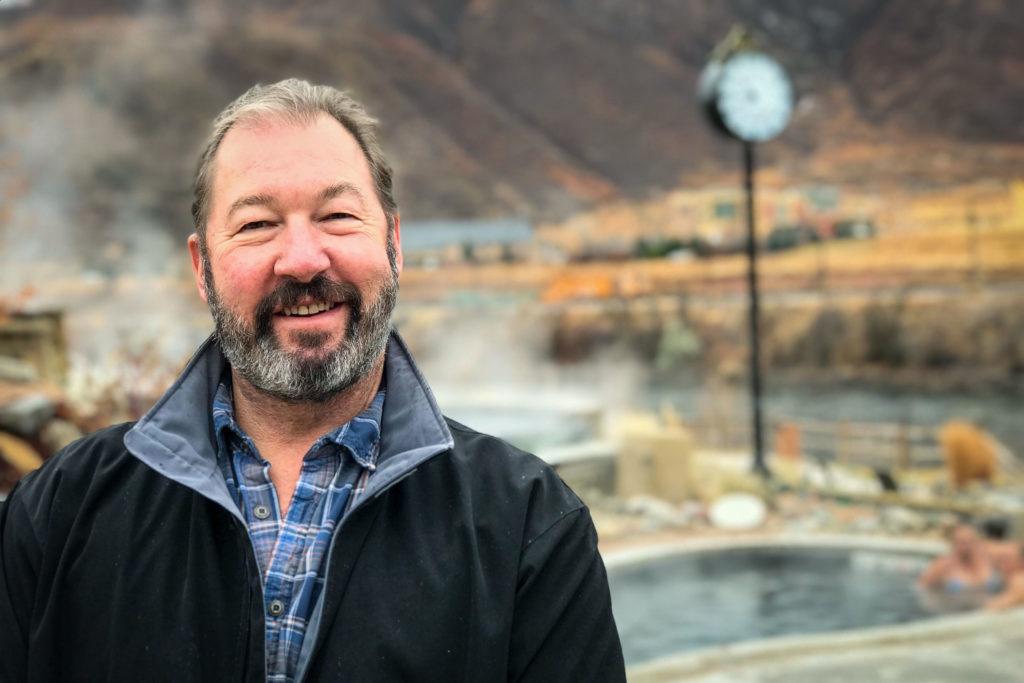
The Railroad yard is just across the Colorado River from Iron Mountain. Beckley said his facility is right on the truck’s path to cross the river and load up the trains.
“I don’t want to spend $20 million on a big luxury hotel if they're going to be all this truck traffic and noises and air pollution that could be associated with it,” he said.
Along with the truck traffic worries and visible damage to the mountain, there’s fear of what might happen to the aquifer that feeds the mineral hot springs. The town's namesake springs are considered the lifeblood of Glenwood’s economy. It’s what this mountain town was built around, and what people from all over the world come to enjoy. It boasts the world’s largest hot springs pool, which has been open since the 1880s.
The city admits it might be unusual to get this involved, but it’s concerned that this isn’t a fair fight — which calls for extraordinary measures like the “Don’t Strip Glenwood” campaign.
Rocky Mountain Resources’ chief executive is Chad Brownstein. He’s the son of Norm Brownstein, chairman of one of the largest natural resources lobbying firms in the country, Brownstein Hyatt Farber Schrek, where Secretary of the Interior David Bernhardt once worked.
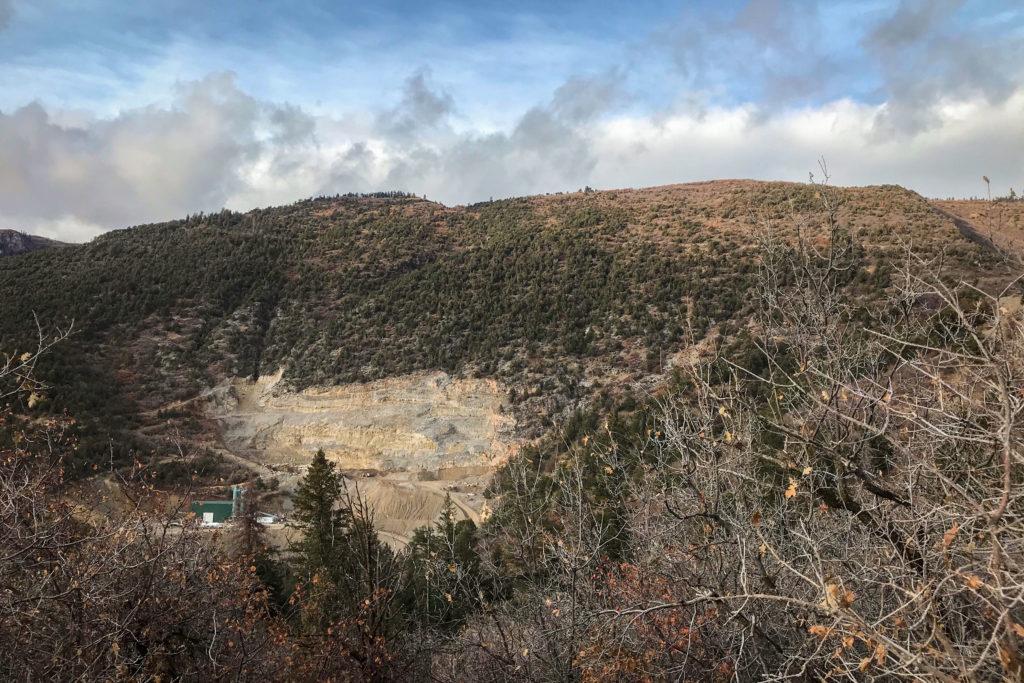
The fear is the BLM’s decision on the quarry expansion will be influenced by Bernhardt. The Interior secretary had previously recused himself from situations that included his former employer, but that two-year agreement expired in August.
RMR didn’t respond to interview requests for this story.
RMR’s quarry is on federal land has a permit through the BLM and Garfield County. The relationship between the quarry and the county isn’t good. Garfield found that RMR is in violation of its permit, things like mining unapproved materials and operating in months it wasn’t supposed to. RMR filed a lawsuit in response to county enforcement that says Garfield doesn’t have that authority.
The BLM process for RMR to remedy their violations is to submit a proposal on how to fix it. In this case, the fix-it plan is the expansion plan. Glenwood attorney Karl J. Hanlon said the city isn’t happy with that.
“BLM has said, ‘Well, yeah, we know they're operating in violation, but we're not gonna do anything about that because they've submitted this larger plan of operation which will solve those problems,’” Hanlon said.
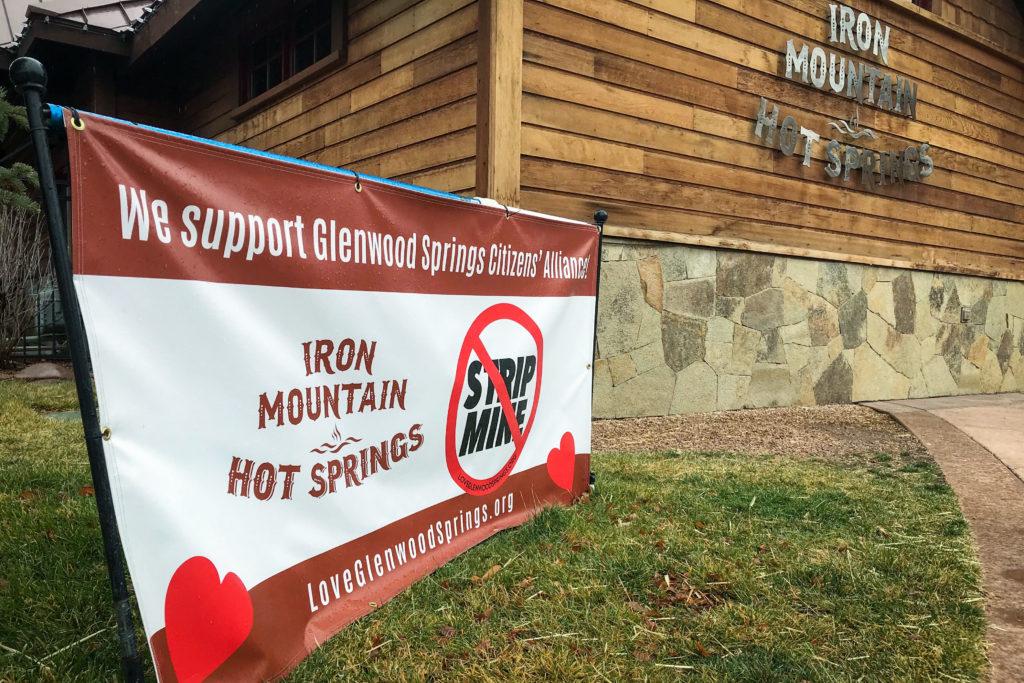
“This creates an enormous amount of concern, because you're presupposing that the plan of operation is going to be approved to address those current violations.”
Along with the opposition from the city, a group of Glenwood Springs residents who call themselves the Citizen’s Alliance have gathered signatures from individuals, businesses and local governments. Towns like Aspen, Carbondale and Basalt have come out against the quarry’s expansion.
Glenwood Mayor Jonathan Godes has come out swinging against the quarry expansion. He said that it’s war and the city will throw $1.25 million into the fight against it.
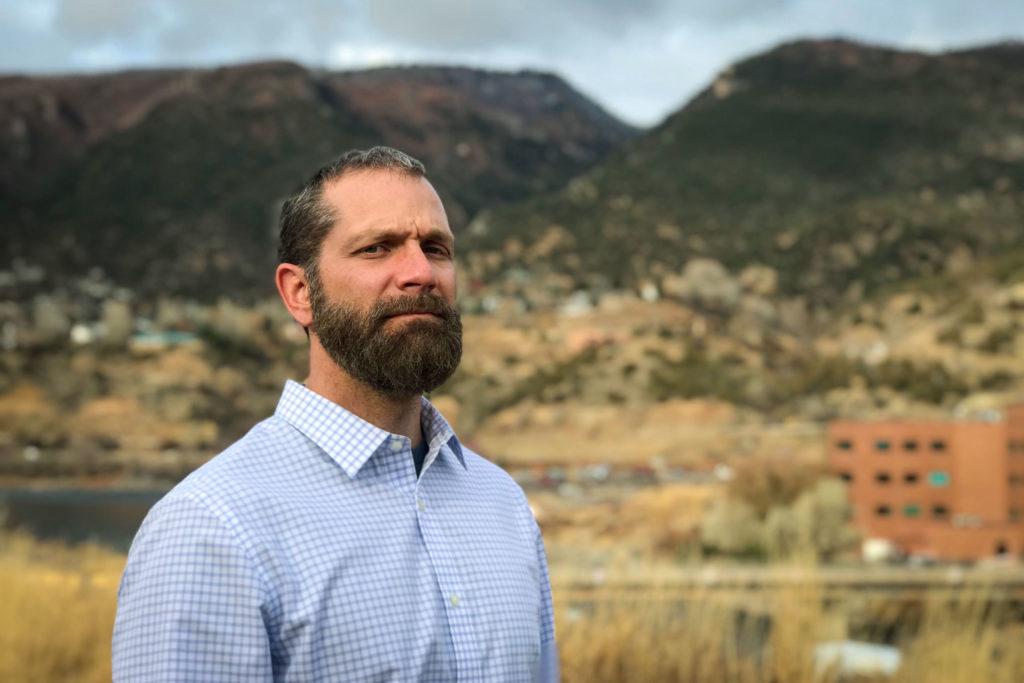
“Any analogy that's less than that is just not adequate,” Godes said. “In war you are fighting to protect your families, your communities. You're fighting for the essence of who you are.”
RMR's expansion proposal says it would add more than 80 jobs to the area. On Facebook, one Glenwood resident said it could be a good idea to diversify the economy beyond tourism. Mayor Godes, who used to live in the northwestern coal mining town of Craig, argued this isn’t the way to do it.
“Those communities are fighting for their lives,” he said of mining-dependent towns like Craig. “Ours is not strip mining. Ours is not extraction. Ours is tourism and the recreation economy.”
The BLM said the earliest an environmental impact study would start is next summer. Under current Department of Interior rules, the BLM would have a year to wrap it up and make a decision on the quarry’s proposal.








